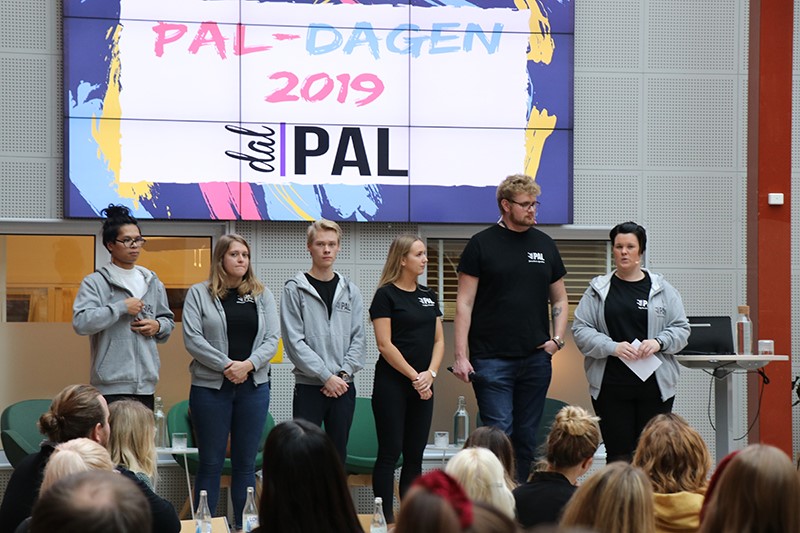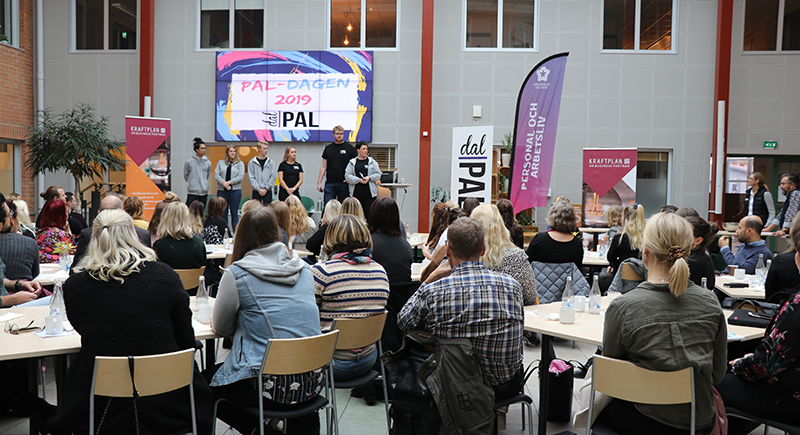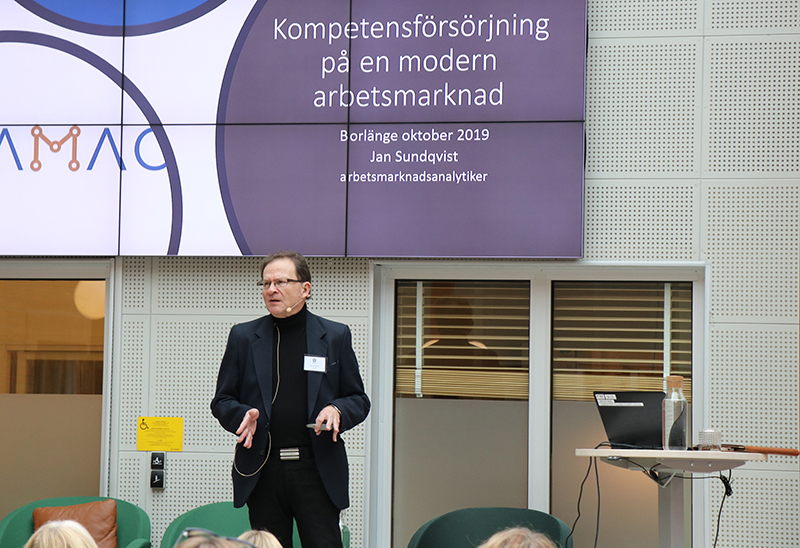
The annual event is organised by the Human Resources Programme (Pal) at Dalarna University in collaboration with DalPal, Kraftplan, HR Business Partner AB and Svamac.
"It's a great opportunity for students to network with representatives from companies and organisations and to introduce themselves to potential employers from around Dalarna," explains Karin Hillman, Chairperson in the organisation DalPal.

The programme for the day was packed with lectures, workshops and panel discussions. It commenced with a lecture over breakfast by Johan Nestor, who after 19 years working for IKEA now works at Kraftplan. Johan shared his experiences related to leadership and how an attractive business culture can be developed.
The morning continued with lectures, one by Mattias Grahn from a trade union and one by Kerstin Isaksson, author of a book about leadership.
Lunch was followed by a lecture given by Janne Sundqvist from Svamac (Svenskt Arbetsmarknadsanalytiskt Centrum), who talked about the labour market as it is today and about how it will look in ten years' time, according to statistics and prognoses.

He talked about the fact that between now and 2025, Sweden will need to add 100 000 new employees to its workforce per year and that this number cannot be met going by current birth rates. This means the adoption of new and different recruitment behaviour.
"It is those born outside of Sweden who have saved our labour market in recent years. I usually say that all labour markets are local. Recruitment to the workforce to companies in Dalarna is something that the government cannot resolve. That we have to do together at a local level, here in the county," Janne emphasised, while showing numbers and statistics about today's labour market.
His lecture was a good basis on which to move on to the afternoon's workshop, where students, companies and organisations divided into groups to work with questions related to future recruitment.
After lively and creative discussions, a panel debate took place that focussed on the discussions that had taken place during the workshop. The conclusion that was drawn was that although there may be challenges, there are also opportunities to be had by current students and companies. What is needed is new knowledge and understanding and development in recruitment processes so that the workforce of the future can be secured.